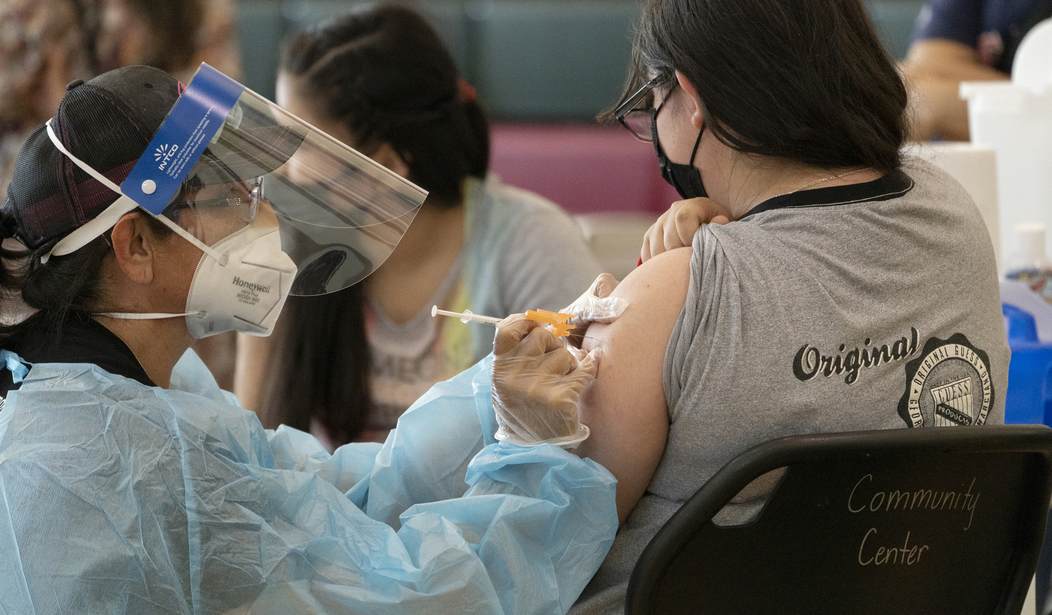We reported on the announcement of a new COVID variant which they are now calling Omicron.
The variant was just discovered this week, but already you can hear the race to paint it in the worst light possible, suggesting that there was a lot to be concerned about because it was “heavily mutated” — that immunity and the vaccines might not protect against it. We saw the Dow take a huge plunge immediately after, likely in part because of thinking that this news could lead back to more government restrictions and problems.
The Biden administration reacted in a chaotic fashion. First, Dr. Anthony Fauci said they weren’t going to be jumping to banning travel from affected areas, and then, a couple of hours later, Biden announced there would be a ban on eight African countries starting Monday at the recommendation of Fauci.
Now obviously, the new variant was just discovered, so I don’t know how anyone can be drawing any real conclusions about it yet; they haven’t had the time to actually study it much. It is, of course, wise to be cautious about it.
But being wise and causing panic are not the same thing.
It’s important not to miss what those who discovered it — the folks in South Africa — are saying about what they’ve seen with the variant so far.
The chairwoman of the South African Medical Association called imposing travel restrictions on the country “hasty.”
Dr. Angelique Coetzee said it was too early to tell what impact the variant would have.
She told BBC News: “We think it is a premature decision that has been taken, I think it is a hasty decision.
“I would understand if it was two weeks later and we know much more about this viral infection that is going around, or this mutation, but for now, it is like a storm in a teacup.
“We have only become aware of this viral mutation, or the new strain we are seeing, last week.”
She added: “From us as medical practitioners, we picked up, last week, the different clinical pictures, we looked at the advisory committees and so far what we have seen is very mild cases. [I’m] not sure why we are all up in arms.
“We know there are a lot of mutations but no-one can tell us at this stage if it means something, or if it is just going to fade away. We just don’t know.”
Coetzee told the Guardian the cases they had seen so far were extremely mild.
“It’s all speculation at this stage. It may be it’s highly transmissible, but so far the cases we are seeing are extremely mild,” she said. “Maybe two weeks from now I will have a different opinion, but this is what we are seeing. So are we seriously worried? No. We are concerned and we watch what’s happening. But for now we’re saying, ‘OK: there’s a whole hype out there. [We’re] not sure why.’”
Coetzee said she’d only seen it in healthy people so far, so she wasn’t sure how it would do in unhealthy people with co-morbidities.
In other words, it might change and there may be cause for concern, but they’re not freaking out about it yet because they don’t have the evidence, since it just appeared.
Imagine actually responding in a considered fashion, based on the evidence. That’s something that seems to have been sorely lacking over the past couple of years, given how governments have responded to the virus — especially the Biden administration which hasn’t met a mandate they don’t like (even if Biden himself flouts those mandates).











Join the conversation as a VIP Member